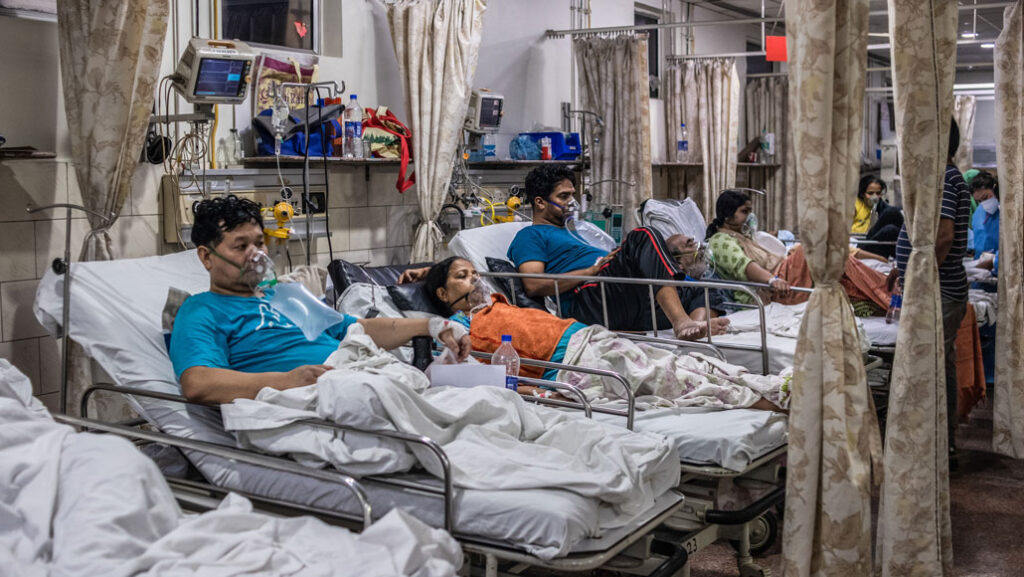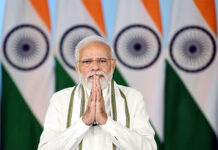
The World Health Organization said Monday that a Covid-19 strain circulating in India, which is experiencing an explosive epidemic, seems to be more infectious and has been identified as “of concern.”
The B.1.617 strain of Covid-19, first discovered in India last October, appeared to be spreading more quickly than the initial form of the virus, and may have some improved resistance to vaccine defences, according to the UN health department.
“There is some available information to suggest increased transmissibility of the B.1.617,” Maria Van Kerkove, the WHO’s lead on Covid-19, told reporters, also pointing to early studies “suggesting that there is some reduced neutralisation”.
“As such we are classifying this as a variant of concern at the global level,” she said, More information will be included in the WHO’s weekly epidemiological report on Tuesday, he said.
On Monday, India, which is experiencing one of the world’s worst outbreaks, registered nearly 370,000 new infections and over 3,700 new deaths.
The catastrophic tsunami has wreaked havoc on the country’s healthcare infrastructure, with experts claiming that official estimates for cases and deaths are much smaller than the true figures.
B.1.617, which has many sub-lineages with significantly differing mutations and features, has long been suspected of leading to the troubling outbreak.
However, WHO has only classified it as a “variant of interest” until now.
It will now be added to a list that includes three other Covid-19 versions — those first discovered in the United Kingdom, Brazil, and South Africa — that the WHO has identified as “of interest.”
They’re thought to be more harmful than the original virus because they’re more transmissible, lethal, or resistant to vaccines.
When it comes to the B.1.617 version, Van Kerkove emphasised that “we don’t have anything to say that our diagnostics, therapeutics, or vaccines don’t function” for the time being.
Soumya Swaminathan, the WHO’s chief scientist, agreed.
What we know now is that vaccines, diagnostics, and the same therapies used by regular viruses work, she said at the press conference.
But there’s no need to adjust either of them, and people can take advantage of whatever vaccines are available to them and for which they are eligible.







